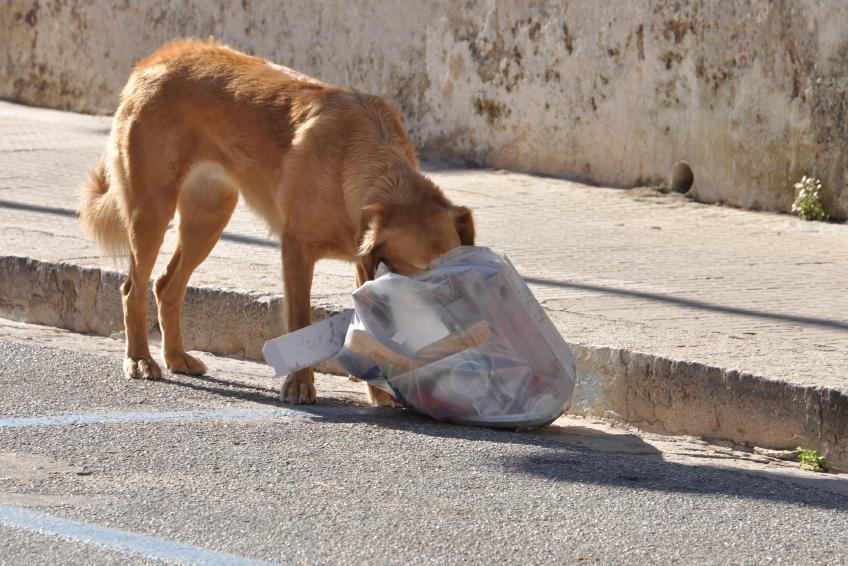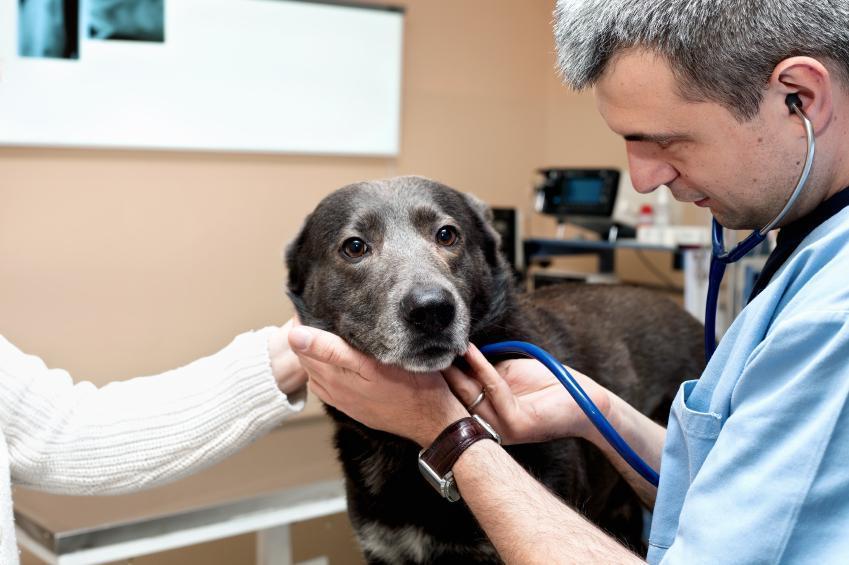Gastritis in Dogs



See files for Dogs
Gastritis is one of the most common gastrointestinal disorders in dogs. It is the inflammation of the gastric mucosa and can be acute (sudden and short-lived) or chronic (a slow and persistent development). In either case, this disease is not usually fatal to dogs when proper treatment is provided.
In order to detect it in time and prevent your dog's clinical case becoming worse, this AnimalWised article will explain the symptoms of gastritis in dogs, the most frequent causes, treatment and prevention methods, among other important information.
Symptoms of canine gastritis
The main symptoms of gastritis in dogs include vomiting and abdominal pain, but other signs of the disease may also appear. Common symptoms of this disease in dogs are:
- Severe and persistent vomiting in chronic gastritis. This may contain bile (yellow), fresh blood (a red to dark colour) or digested blood (you can see dark grains that are like coffee beans).
- Sudden and frequent vomiting in acute gastritis. This may also contain bile, fresh blood or digested blood.
- Abdominal pain can range from mild to intense.
- Loss of appetite.
- Weight loss.
- Diarrhea.
- Dehydration.
- Weakness.
- Lethargy.
- Blood in the stool.
- Pale mucous due to blood loss.
- Yellow mucous due to the ingestion of toxins.
- Drooling.
Causes and risk factors
Acute gastritis is almost always associated with ingesting substances harmful to your dog. This can occur if your dog eats rotting food, ingests toxic substances (poison, human medicines, etc.), binge eats unhealthy foods (common at parties), eats feces from other animals or eats indigestible substances (plastics, fabrics, toys, etc.). It can also be caused by internal parasites, bacterial or viral infections, or diseases of other organs such as the kidneys and liver.
If not treated properly, the acute form of the disease can evolve into chronic gastritis. The latter is caused by long-term damage of the gastric mucosa and the bacterial flora of the digestive tract. Some objects ingested by the dog are not digestible and can remain in the stomach without going through the entire digestive tract, causing irritation and inflammation. This can be with plastic, pieces of carpet, leads, paper, rubber toys and other items that are frequently eaten by dogs.
Other causes of chronic canine gastritis are diseases. Bacterial infections, viral infections, distemper, parvovirus, cancer, kidney problems, liver disease and food allergies in dogs can cause gastritis. Also chemicals lingering in the environment, such as fertilisers and pesticides, can cause this form of the disease.
Gastritis affects dogs no matter the breed or sex, but there is a risk factor in the behavior of dogs and the owner being irresponsible. Dogs that eat rubbish, which roam freely in the streets and those who frequently eat feces from other animals, are more prone to cases of gastritis. Dogs that eat grass are often also prone to this, mainly due to the presence of fertilisers and pesticides.

Diagnosing gastritis in dogs
The initial diagnosis is made based on medical history and symptoms present in your dog. In addition, the vet will want to know your animal's eating habits, if they take food from the bin, if they chew furniture and clothes, if they have had access to places where poison or drugs are stored, what their normal diet is and if they have been treated for any other diseases. They will also physically examine the dog, looking inside their mouth and touching their neck, chest, belly and flanks.
Diagnosis of canine gastritis may require a blood test to see if there are toxins or diseases that have not been considered. X-rays and ultrasounds may also be needed to see if there is a foreign object in their stomach. When chronic gastritis is suspected, the vet may request a biopsy of the gastric mucosa.

Treatment for canine gastritis
Treatment of canine gastritis usually starts by stopping your pet's food intake for a period of time, which can range from 12 to 48 hours. In some cases the vet may recommend also limiting the amount of water ingested, but without stopping it completely. In addition, the vet will recommend a suitable diet that normally has to be given in small, frequent servings until the gastritis has healed.
If necessary, the vet will prescribe antibiotics, corticosteroids, antiemetics (to prevent vomiting) or other drugs that may be deemed appropriate for each individual case. If the gastritis is caused by a foreign object in the stomach, usually the only solution is surgery.
Most cases of gastritis in dogs have a good prognosis after treatment. However, gastritis caused by cancer and other systemic diseases may have a less favorable prognosis.

Prevention of gastritis in dogs
As with most diseases, the best treatment is always prevention. And to prevent canine gastritis, AnimalWised recommends that you consider the following tips:
- Prevent your dog from stealing food from the bin.
- Do not allow your dog to go out alone and wander around the neighborhood.
- Make sure your dog has no access to drugs and toxic substances.
- Make sure they don't overeat.
- Do not feed them leftovers (especially at parties) in addition to their regular food.
- Do not give them foods that provoke allergies.
- Be up to date with puppy and adult vaccinations.
This article is purely informative. AnimalWised does not have the authority to prescribe any veterinary treatment or create a diagnosis. We invite you to take your pet to the veterinarian if they are suffering from any condition or pain.
If you want to read similar articles to Gastritis in Dogs, we recommend you visit our Intestinal problems category.








